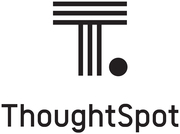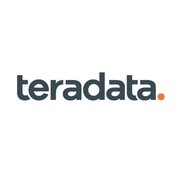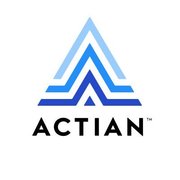Data Warehouse Software
Data Warehouse Software Overview
Top Rated Data Warehouse Products

These products won a Top Rated award for having excellent customer satisfaction ratings. The list is based purely on reviews; there is no paid placement, and analyst opinions do not influence the rankings. Read more about the Top Rated criteria.
Data Warehouse Software TrustMap
TrustMaps are two-dimensional charts that compare products based on trScore and research frequency by prospective buyers. Products must have 10 or more ratings to appear on this TrustMap.
Data Warehouse Products
(1-25 of 49) Sorted by Most Reviews

Treasure Data
Treasure Data is an enterprise customer data platform (CDP) that powers the entire business to reclaim customer-centricity in the age of the digital customer. It does this by connecting all data and uniting teams and systems into one customer data platform to power purposeful engagements…

ThoughtSpot
ThoughtSpot is an analytics platform that enables users to leverage natural language search and AI to find data insights and tap into the most cutting edge innovations the cloud data ecosystem has to offer. The vendor states companies can put the power of their modern data stack…
Key Features
- Drill-down analysis (65)82%8.2
- Customizable dashboards (65)77%7.7
- Formatting capabilities (64)72%7.2

Google's BigQuery is part of the Google Cloud Platform, a database-as-a-service (DBaaS) supporting the querying and rapid analysis of enterprise data.
Key Features
- Database scalability (27)99%9.9
- Automated backups (22)97%9.7
- Monitoring and metrics (23)86%8.6

Oracle Autonomous Data Warehouse
Oracle now offers their Autonomous Data Warehouse Cloud PaaS, a fully managed data warehouse available through Oracle Cloud.
Learn More About Data Warehouse Software
What is Data Warehouse Software?
A data warehouse is a database designed for data analysis instead of standard transactional processing. A data warehouse acts as a conduit between operational data stores and supports analytics on the composite data. Slices of data from the warehouse—e.g. summary data for a single department to use, like sales or finance—are stored in a “data mart” for quick access.
In order for a data warehouse to support decision-making effectively, data extracted from various data sources and loaded into the warehouse is normalized. It can be organized into tables, cleaned of redundancy and transformed for consistency. The process by which this happens is called Extract, Transform, and Load (ETL). Once appropriately structured data is made available for querying and analysis.
Data Warehouse Features & Capabilities
To support analyses data warehouses provide the following capabilities:
Associated input, extract, and data management tools for preparation
Extract from a multitude of source file types (flat files, excel, application data, etc.)
May load & normalize structured, semi-structured, or unstructured data
Data transformation (cleansing, deduplication, consistency)
Data reconciliation for various naming conventions
Native & autonomous storage and processing optimization
Provide a 360 view of all enterprise data
Multiple deployment options (private or public cloud, on-premise, hybrid cloud)
Available as-a-service (automated infrastructure management)
Integrated machine-learning algorithms, AI
Access controlled data sharing, data mart
Deploy virtualized data warehouse for extra security, access control
In-built data encryption for high-security needs
Pricing Information
Data warehouses from full-stack vendors are often sold as standalone products that must be integrated with other tools. Many data warehouses can be deployed and tested with ease under a free trial for 30 or 60 days. Vendors compete on performance but also pricing. Many popular data warehouses feature on-demand pricing, based on (for instance) compute per second. Alternately, some vendors offer a reduction in on-demand pricing for annual or multi-year commitments.
Data Warehouse Comparison
Integrations: Data warehouses are built to store and analyze data from different sources. When selecting a data warehouse, be sure to select one that has built-in connectors for the sources you need to pull in data from, or supports the building of custom integrations.
Performance: Some data warehouses support extremely fast performance, with some able to process tens of trillions of tables in a single day. With high performance usually comes a higher cost, though, so consider how much data analysis and manipulation you expect to perform in a day and choose a solution that meets those needs but isn’t over the top.
Stability: Many data warehouses claim to achieve near 100% uptime, but a common complaint users list in data warehouse reviews is lack of stability. Be sure to choose a data warehouse with high stability, especially if your business is highly data driven.















